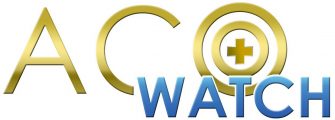by Gregg A. Masters, MPH
If you’re a health policy junkie like me, then the best show in town (or anywhere for that matter) was in the Dirksen Senate Office Building in Washington, D.C., where HMO industry veteran and Chairman, President and CEO of Aetna Mark T. Bertolini and Anthem President and CEO Joseph R. Swedish among other industry stakeholders testified before the Senate Judiciary Subcommittee on Antitrust, Competition Policy and Consumer Rights on health insurance industry consolidation, for video replay click here or watch below:
As most of you reading this blog know, subject to the Department of Justice review Aetna will acquire Humana, and Anthem will acquire CIGNA. Thus, the submitted testimonies and ad hoc answers to sitting Senators on the Subcommittee were potentially a high stakes exchange.
Moreover, the hearing today was nothing short of a tutorial into the dynamics of the managed competition marketplace (both theory and practice since absent complete transparency assuming the salutary benefits of such competition may be more ‘wishful thinking‘ than reality as noted by Senator Blumenthal – CT, the home of the insurance industry) and whether this unique American strain of public/private collaboration can deliver on the oft repeated promises of such integration, i.e., that scale via consolidation drives operating efficiencies, improves quality and lowers costs to end users. We shall see…
As I heard the pitches from the various representatives assembled to offer perspective to the sitting Senators (see list here), I began to wonder if any of their testimony would be subject to the ‘false claims Act‘ if post consolidation the promised benefits do not accrue to the intended benefactors.
For those of you not familiar with the ‘False Claims Act‘ or otherwise known as Qui Tam filings, here a summary including its recent expanded scope via the Affordable Care Act:
The False Claims Act, expanded by the Fraud Enforcement and Recovery Act of 2009, P.L. 111-21 (S. 386), 123 Stat. 1617 (2009), now proscribes: (1) presenting a false claim; (2) making or using a false record or statement material to a false claim; (3) possessing property or money of the U.S. and delivering less than all of it; (4) delivering a certified receipt with intent to defraud the U.S.; (5) buying public property from a federal officer or employee, who may not lawfully sell it; (6) using a false record or statement material to an obligation to pay or transmit money or property to the U.S., or concealing or improperly avoiding or decreasing an obligation to pay or transmit money or property to the U.S.; (7) conspiring to commit any such offense. Additional liability may also flow from any retaliatory action taken against whistleblowers under the False Claims Act. Offenders may be sued for triple damages, costs, expenses, and attorneys fees in a civil action brought either by the United States or by a relator (whistleblower or other private party) in the name of the United States.
If the government initiates the suit, others may not join. If the government has not brought suit, a relator may do so, but must give the government notice and afford it 60 days to decide whether to take over the litigation. If the government declines to intervene, a prevailing relator’s share of any recovery is capped at 30%; if the government intervenes, the caps are lower and depend upon the circumstances. Relators in patent and Indian protection qui tam cases are entitled to half of the recovery.
Not sure if qui tam consideration can or even remotely applies to the upside representations proffered in favor of the acquisitions, since as noted by one or more witnesses today much of the empirical (public) record is incomplete and inconsistent with respect to supporting or discounting the arguments that will or have been made to DOJ as they conduct their anti-trust investigation into the proposed acquisitions or mergers.
[Editor’s Note: Two examples of previous health insurance industry consolidations were noted, including Aetna’s 1999 acquisition of PruCare, and United Health Group’s acquisition of Sierra Health Services. I will post the submitted witness testimony once it becomes available online, including any current discussion ‘tea leaves’ of what and where the DOJ investigation may be headed in both transactions. If you have anything, please feel free to add in comments section.]
This Subcommittee hearing is rich with both fundamentals and nuance considerations of the Affordable Care Act and whether it’s many moving parts can indeed align to meet the legislative intent of its authors.
Stay tuned!

Is there any evidence that consolidation in the health insurance industry is less damaging to the public interest than mergers in any other industry? We have recent salient examples in the airline and communication industries, as just two cases, where choice is further limited and price goes up.
Congressional hearings and DOJ reviews are just theater. Since the Reagan years few mergers have been blocked and regulation and enforcement has effectively disappeared. Corporate power and money holds sway over much public policy.
In this era, the only ray of light is the election of Bernie Sanders as President and prosecuting the political revolution that he is urging. There is absolutely nothing else on the horizon, or no one else even inclined to pose a challenge to the corporate dominance of our political and economic systems.
Hi Max, and thanks for the comment (what a surprise).
Actually ‘Moore’s Law’ seems well intact in tech industry, thought it’s relevance to healthcare remains to be seen.
Competition in other industries also seems to be pro-consumer although there are points of view on both sides.
Healthcare is somewhat immune from typical benefits of competition. The vertical or horizontal integration to date has been somewhat tepid at best to restrain pricing
Thanks again for comment Dr. Max!
Gregg